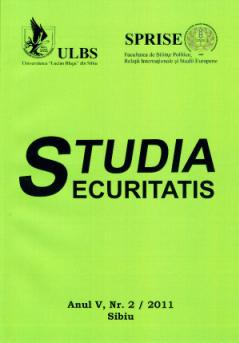CONFLICTUL DIN LIBIA – O AMENINŢARE PENTRU SPAŢIUL TRADIŢIONAL DE SECURITATE AL ALIANŢEI NORD-ATLANTICE?
THE LIBYAN CONFLICT – A THREAT FOR THE TRADITIONAL SECURITY SPACE OF NATO?
Author(s): Eugen LunguSubject(s): Politics / Political Sciences
Published by: Editura Universitatii LUCIAN BLAGA din Sibiu
Keywords: Libya; North Atlantic Alliance; security; Libyan civil war; authoritarian regime
Summary/Abstract: Starting on 31th March, 2011 the North Atlantic Organization took over military air operations against Gaddafi's loyal forces, having the agreement of the National Transition Council (the Libyan opposition). UN Resolution of 1973 was voted by 10 members of the UN Security Council and five members abstained from voting (China, Russia, Brazil, India and Germany). The states which are permanent members of the UN Security Council did not use the veto. It's a good thing as compared to Kosovo¢s situation in 1999 when there were countries that were against it. The takeover by NATO of military operations in Libya has demonstrated that the alliance has some issues to solve in order to achieve consensus when NATO executes a mission outside the traditional area of operations established by Treaties. Although within the NATO Summit of Lisbon in 2010 there was developed a New Alliance Strategic Concept, however, NATO has continued to have problems according to the member states` different perception of threats against the Alliance. The massive migration of Libyans to Tunisia, France, Italy, etc. created a security problem in North Africa and the Southern Europe. Within NATO, Germany did not want to participate with military forces in the operation in Libya, and Turkey opposed, in the first part, the making of a decision on NATO's military intervention in Libya. The decision of the UN Security Council concerning community international`s possibility to militarily intervene in Libya has reopened the debate on the doctrine of humanitarian intervention.
Journal: Studia Securitatis
- Issue Year: 2011
- Issue No: 2
- Page Range: 76-84
- Page Count: 9
- Language: Romanian
- Content File-PDF

